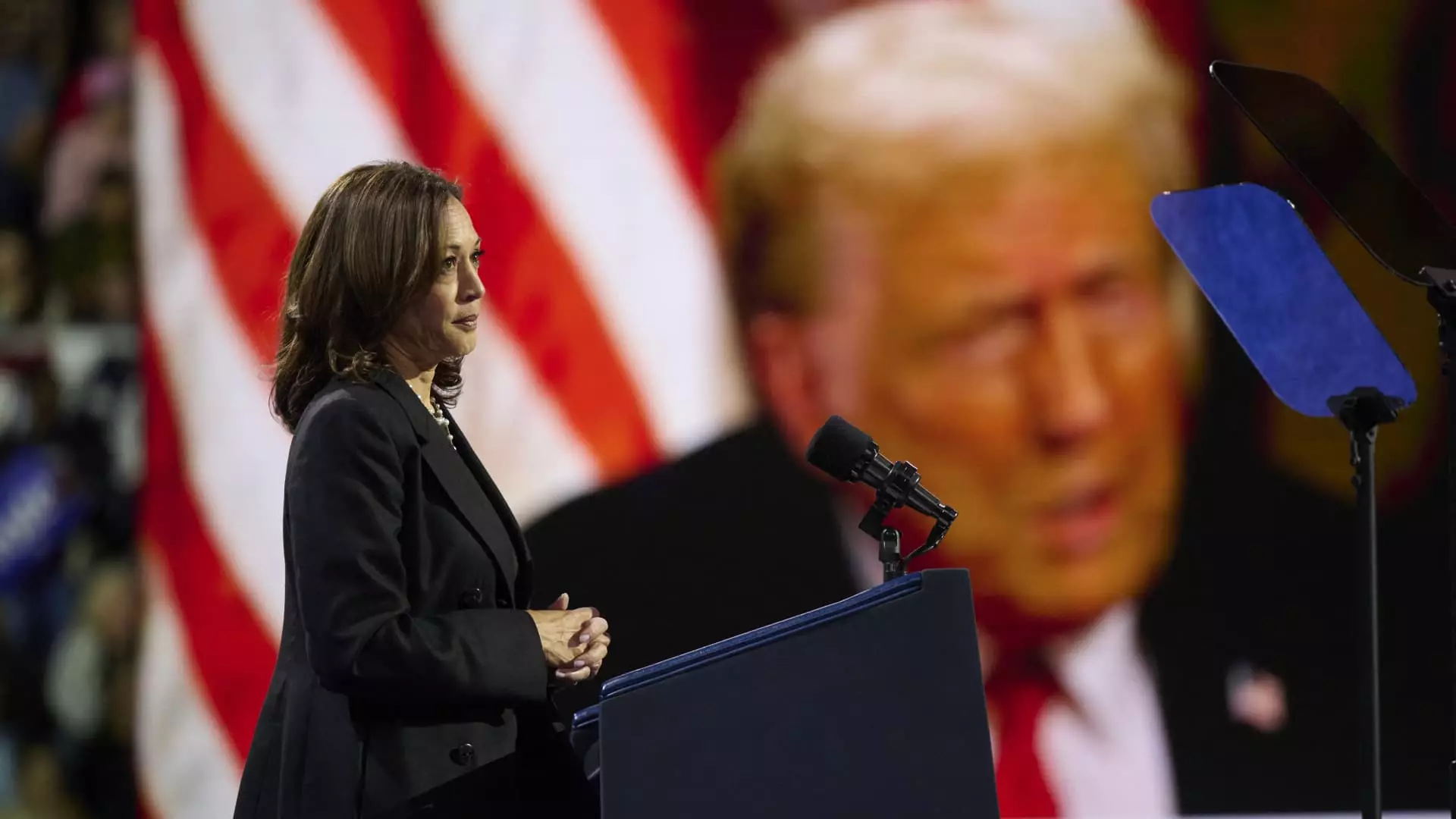As the 2024 presidential election approaches, political betting has emerged as an intriguing facet of the electoral landscape. Unlike conventional polling, which gauges public sentiment through surveys, platforms like Polymarket offer a financial stake in the outcome. The recent spike in betting on former President Donald Trump to secure the Republican nomination has stirred a whirlwind of scrutiny, revealing the intricate dynamics of how money influences perceptions of political viability. The implications of such activities transcend mere gambling; they tap into the cultural zeitgeist surrounding the election.
The recent revelations regarding four accounts on Polymarket, which collectively funneled over $28 million into betting on Trump, reveal significant insights about the motivations of bettors within political markets. Polymarket determined that these accounts are linked to a single trader, a French national with a background in financial services and substantial trading experience. Skepticism arises about the motivations behind this concentrated betting activity. Critics question whether this individual’s substantial financial moves are genuine bets or calculated efforts to sway public perception of Trump’s candidacy. Such practices raise ethical questions about market manipulation and the dynamics of prediction assets.
Despite the concerns, Polymarket maintains that no evidence has surfaced indicating the accounts were employed to manipulate market odds. Their partnership with third-party investigations has yielded transparency, allowing the platform to affirm the integrity of its betting marketplace. However, the dual nature of prediction markets—functioning both as betting platforms and quasi-indicators of public sentiment—carries intrinsic risks. The public may misconstrue a surge in betting as a reflection of Trump’s rising popularity, despite contradicting traditional polling outcomes.
A crucial aspect of this dynamic is the distinction between prediction markets like Polymarket and conventional polling methods. While polls are designed to capture public opinion or voting intentions, prediction markets operate differently. They translate real financial stakes into probabilities of events occurring. This fundamental difference can lead to misinformation surrounding the confidence placed in betting markets compared to polls. Polymarket emphasized in its communications that its platform measures likelihoods rather than intent—an important delineation that can influence how people interpret betting trends.
The recent betting behavior on Polymarket, particularly Trump’s increasing odds compared to his opponents, may reflect the enthusiasm of a dedicated voter base rather than the comprehensive sentiment of the electorate. This divergence highlights the risk of overreliance on financial markets as barometers for electoral potential, particularly when they may not accurately reflect broader public opinion.
High-profile endorsements from individuals such as Elon Musk have further complicated the narrative surrounding political betting. Musk’s assertion that wagering markets are more indicative than polls because they involve actual financial stakes adds another layer of complexity. His influence as a prominent business leader not only legitimizes the betting market to some extent but also intertwines it with celebrity culture, potentially skewing public perception of Trump’s candidacy.
The excitement surrounding betting tends to breed a self-reinforcing cycle. As interest grows and more capital flows into bets favoring Trump, narratives of his strength as a candidate may reinforce voter enthusiasm, leading to increased stakes. However, this does not necessarily translate to widespread electoral support, as evidenced by persistent gaps between betting trends and polling results.
The conversation around political betting is evolving, particularly with platforms like Kalshi making headway following favorable legal rulings. Yet, the scrutiny on entities like Polymarket continues, especially given their past legal challenges with U.S. regulators. The future of political betting hinges on regulatory landscapes, public perception, and the willingness of bettors to engage in a system that remains contentious.
Ultimately, the fervor towards Trump on betting markets reflects broader societal sentiments as the 2024 election looms. As voters navigate through the cacophony of information—balancing polling data, economic realities, and the fluctuating odds of various betting platforms—the implications of these betting trends exemplify a fascinating and complicated intersection of politics, finance, and public opinion. Transparency and education will be crucial in demystifying political betting, guiding both casual bettors and serious observers alike toward more informed conclusions in this ever-tightening electoral race.

